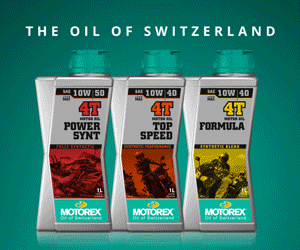Nicki Pedersen
Triple world champion Nicki Pedersen has three Speedway GP World Championships and four FIM Speedway World Cup gold medals, making him one of the most talked-about riders in the history of FIM Speedway, and with good reason.
He made history once again this summer as the FIM SWC’s first-ever rider-manager for Denmark and, even at 46, he shows no signs of slowing down on the track.
Paul Burbridge caught up with him as part of the FIM Speedway Stars of the Century series, celebrating 100 years of the sport …
Firstly Nicki, how were you first introduced to speedway?
“I got introduced by my local bank. They invited me and my brother Ronni out to try a speedway bike. Before that, we were on mopeds or motocross bikes, riding in the fields. We didn’t really know anything about speedway, but the local bank took us along to the track and we got hooked straight away. It was actually Fionia Bank, which became my sponsor nearly 15 years later – after I became world champion for the first time in 2003. It was nice that I got introduced to the sport by them and later we worked together again.”
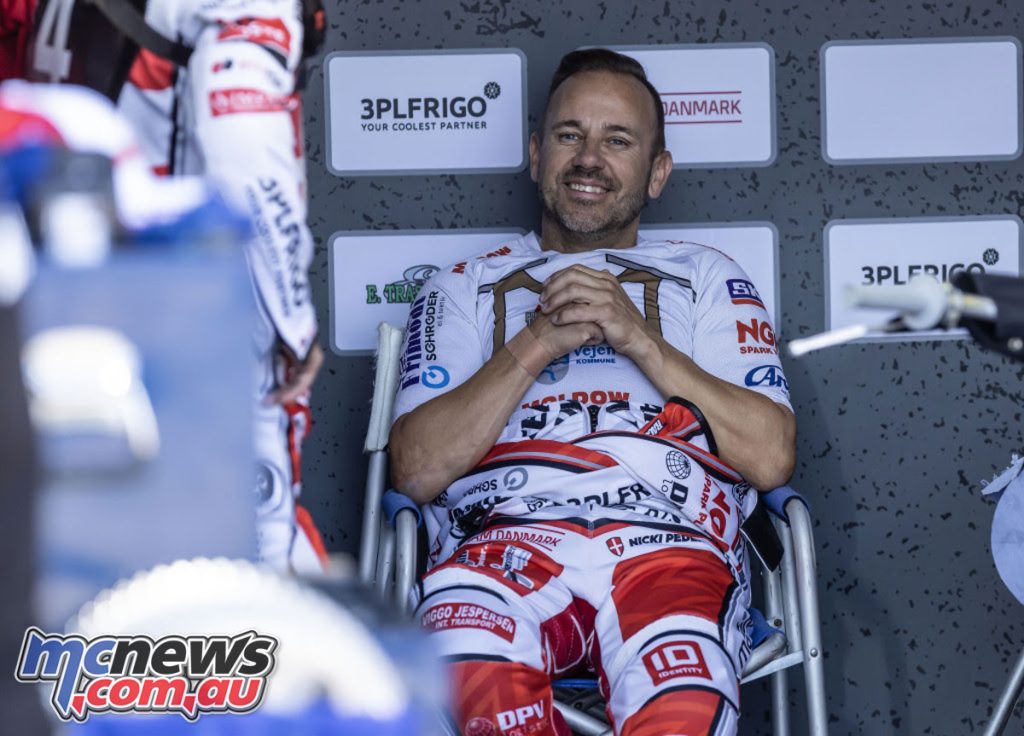
You are not short of speedway legends in Denmark. But which rider did you look up to as a kid?
“That was (1991 FIM Speedway world champion) Jan O Pedersen for sure. He was from the same village, Middelfart, and the same club that I rode for in Fjelsted. He was a racer. He wasn’t the biggest guy in the world either, so he had this racing style that I liked and copied a little.”
After starting out with Fjelsted, you debuted in Britain with the Newcastle Diamonds in 1998. The British leagues were still the world’s biggest at that time. How important was this step?
“I had just finished my apprenticeship as a machine engineer, and I wasn’t allowed to go to Britain before I had completed the apprenticeship. But the day I had that certificate, and I got that at 12pm, my ferry left Esbjerg for Harwich (UK) at 6pm. The next day, I started my professional speedway career in Britain. To become a world champion or a good speedway rider, you had to race on the British tracks. I knew that was important. At that time, I got paid £20 per point and £150 per week for my accommodation with a family that I stayed with. It was a tough time, but it was the best time I ever went through because it made me understand speedway life and respect that way of life, knowing you have to work hard to get the things you want to achieve. You need to stay motivated because money isn’t everything – there wasn’t any money!”
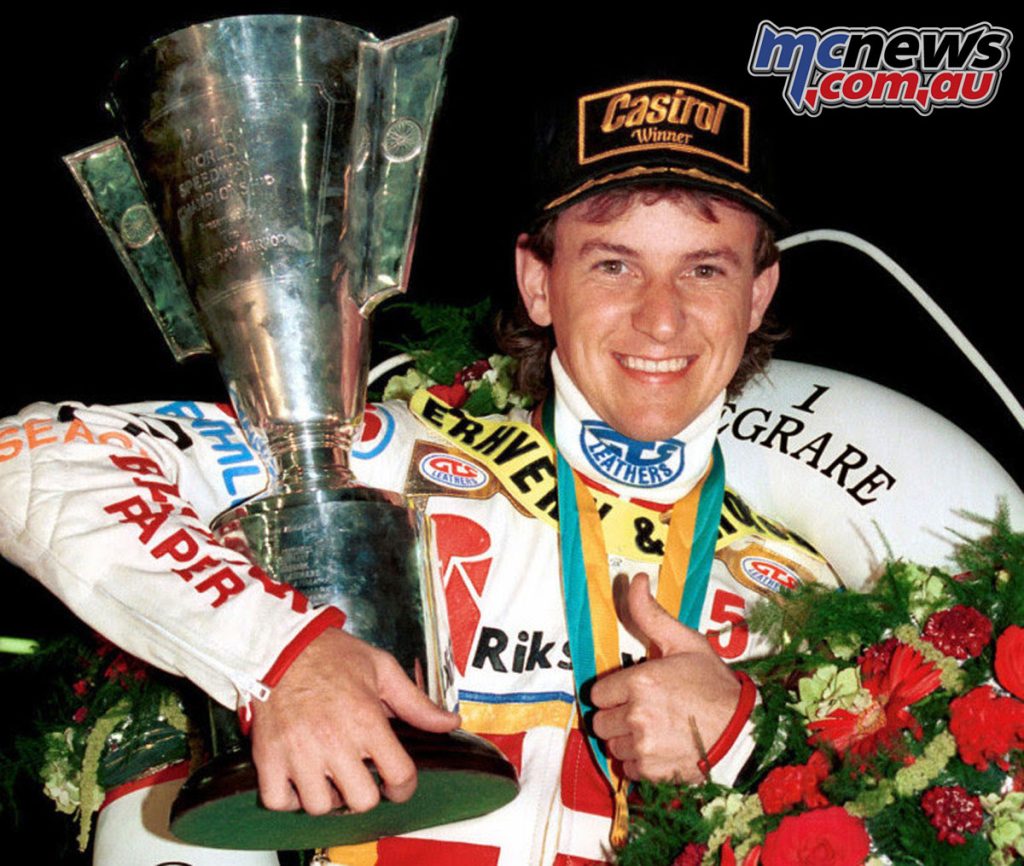
You once told a story about sleeping in airports to save money in your younger days instead of paying out for a hotel. You have come a long way since then!
“I was saving up the money for servicing my engines and stuff like that. I remember those times. If I am led in a hotel bed and I am not quite comfortable or happy with the room, or if it’s too noisy, I still think of the times when I slept in airports. It still makes me smile nowadays when I get a little bit grumpy. I realise my life isn’t too bad actually.”
For many years, you raced in all four of Europe’s top leagues in Britain, Poland, Sweden and Denmark alongside Speedway GP. By today’s standards, that’s a crazy schedule. Why did you and many other riders take this on?
“I think it was kind of natural for me to earn the money and make sure I was prepared for the Grand Prix. You had to ride in all of those leagues because one wasn’t enough money-wise. We had to do it and it’s all about motivation. If you are not really up for it and don’t want to put all of your effort into it, it’s never going to happen. It wasn’t a question of whether I wanted to do it. I had to do it to make sure I could earn enough to come and compete against the top boys at the top level. I had to race in all of those leagues and a lot of the Grand Prix tracks were in all of these different countries. It wasn’t enough to only ride in Poland or Denmark at that time.”
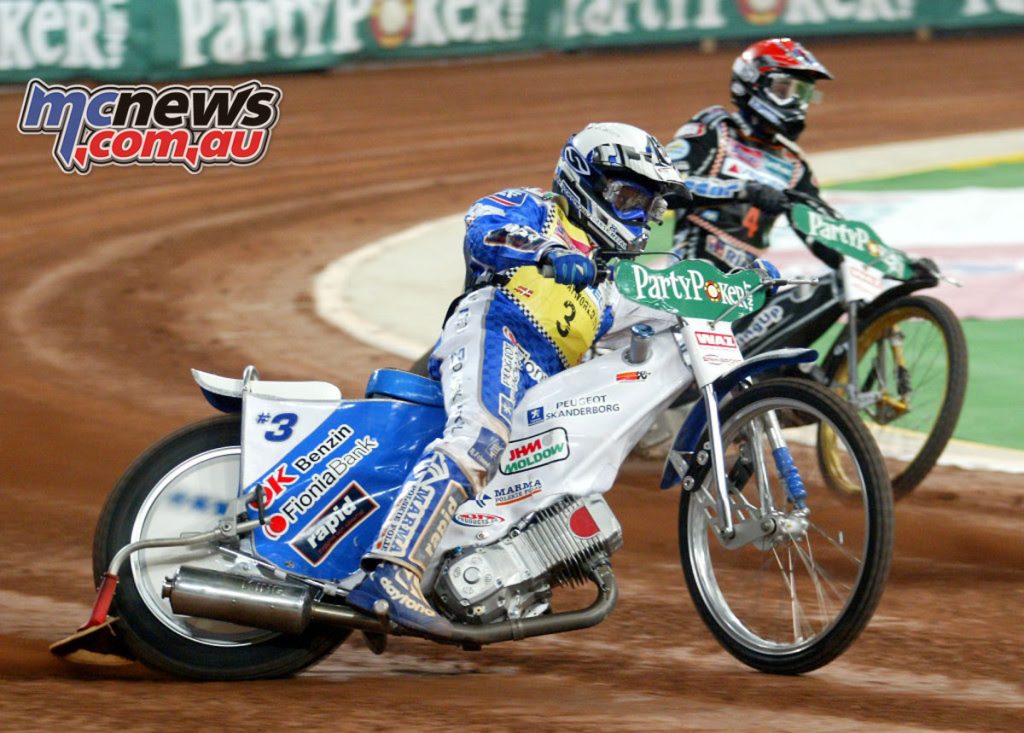
You made your Speedway GP debut as a wild card at the FIM Swedish Speedway GP in Linkoping on June 3, 2000, scoring one point.
But things went much better at the FIM Danish Speedway GP in Vojens on September 2, 2000, when you raced to fourth place and your first SGP final. What are your memories of your first taste of the Speedway GP World Championship that year?
“I had a chance in Linkoping – they gave me a wild card and I didn’t do that well, but it was a great challenge and an opportunity to see what it was all about. Then I raced in Vojens. I got the wild card and went straight to the final. In the sponsor tent before the meeting, one of the sponsors said they believed in me and wanted me to be in the final. They said if I was in the final, they wanted to become my main sponsor for the year after. I had a lot of pressure on me that night, but I managed it. I love challenges like that.”
You became a full-time Speedway GP rider in 2001. You took third place at the opening round in Berlin that year and then collected your first-ever SGP victory at the FIM European Speedway GP at the iconic Silesian Stadium in Chorzow, Poland on September 14, 2002. How did you find those first two SGP years?
“I nearly won the first GP of 2001, but Tony Rickardsson knocked me off in the final. Looking back, it was probably good that I didn’t win it. I wouldn’t say I would have become big-headed. It’s nice to win, but I would rather work to become more consistent than win once in a lifetime. I knew 2001 was going to be an extremely tough year, but I learned from every single round. Chorzow in 2002 was my first-ever Speedway GP win. I didn’t have the best kind of night or year. The effort I put in was extremely good, but it just didn’t show on the track. We made a few changes for that Grand Prix in Chorzow and, all of a sudden, we managed to find the speed, get consistency all night long and then I was in the final.”
You went from 12th place in the 2002 Speedway GP World Championship all the way to top spot in 2003. What do you feel transformed you into a world champion in this short space of time?
“The biggest change was probably my training in the winter. But I also changed from Antig frames to Jawa frames. We came home from the Grand Prix in Sydney, Australia in 2002. I flew back to Britain straight away and I tested a couple of Jawa chassis. I decided that the next year I would race on the Jawa frames, which a lot of other riders did – they were a little bit more flexible than my Antig frame was. The year after in 2003, I had better speed and better consistency. I was making better starts. That made the biggest difference and was the biggest change compared to what I had before.”
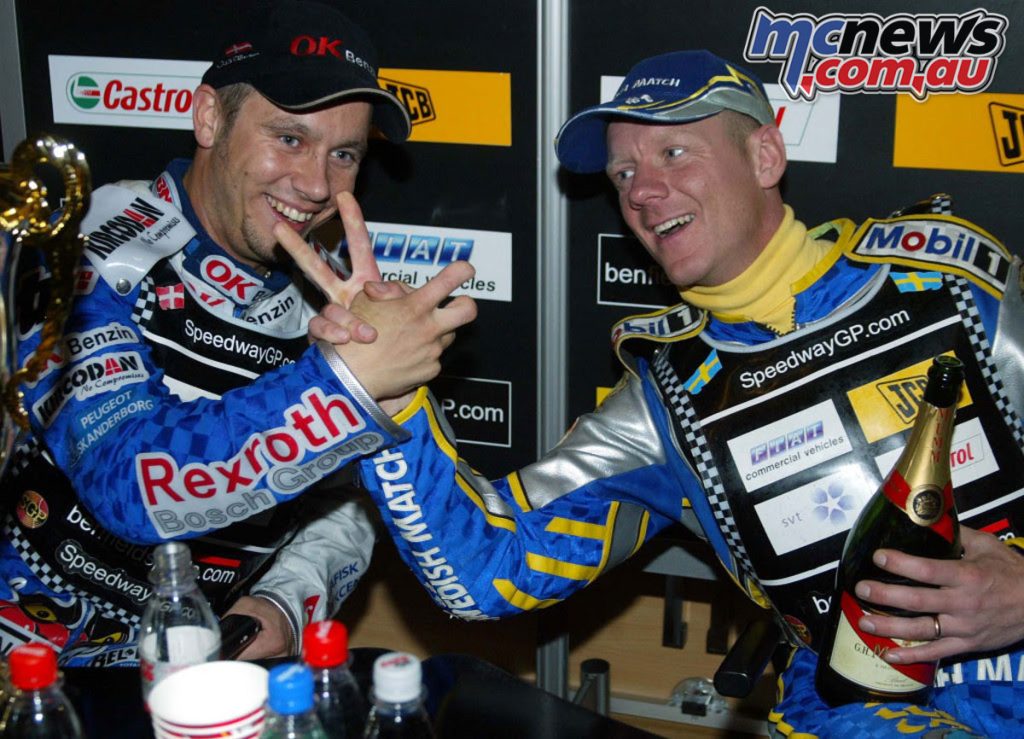
You picked up one victory during that golden season, winning the FIM British Speedway GP in Cardiff on June 14, 2003. It’s an event that every rider dreams of winning. How significant was this night in your career?
“I think on the night I had eight heats and 11 starts. There were a few crashes as well. It’s always tense and tough in the Cardiff Grand Prix. It always was the biggest one that everybody wanted to win. That was one of the achievements of my career – I wanted to win in Cardiff, and I did. I knew I was making good steps towards becoming world champion in 2003. But I always take things step by step and that was definitely a step in a good direction.”
You sealed that first gold medal in a tense title showdown at the FIM Norwegian Speedway GP in Hamar on October 4, 2003. You secured the gold medal after Australian legend Jason Crump was excluded from semi-final two following a clash with Rune Holta. What do you recall about that dramatic night?
“It was very tense. I just went there with a positive mindset, and I wanted to do my best. Jason was a point ahead going into the last round and we both made the semi-final. In my semi-final, Bjarne Pedersen made a good gate; he was in front, and I was last. I had Bjarne, Tomasz Gollob and Scott Nicholls in front of me. In a couple of laps, I managed to make a good corner and I squeezed past Scott and Gollob. All of a sudden, I was second and I managed to make it to the final. Before the semi-finals, I was hoping Jason would be in the first semi because then I could see if he made the final or not. But looking back at it, it was actually good that I put a lot more pressure on Jason by getting through the first one – it was up to him to make the final if he wanted to become world champion.
“Maybe that put a lot of pressure on him, and he was a bit too hard on Holta. Maybe he should have waited a bit before making the move, but it’s easy to say looking back. When you see the gap, you go for it. It was a tight, tight racetrack and there wasn’t much room. I am glad the TV was available so that the referee could take his time and make his mind up. There’s no doubt Jason came from behind and nine out of 10 times, when the guy comes from behind and knocks the guy off in front, they get excluded.
“We were just waiting and waiting, and all of a sudden, the referee made the decision. Then we were screaming and yelling in the pits when I became world champion. It was just unforgettable. It was a dream come true and it wasn’t easy to take in and understand.”
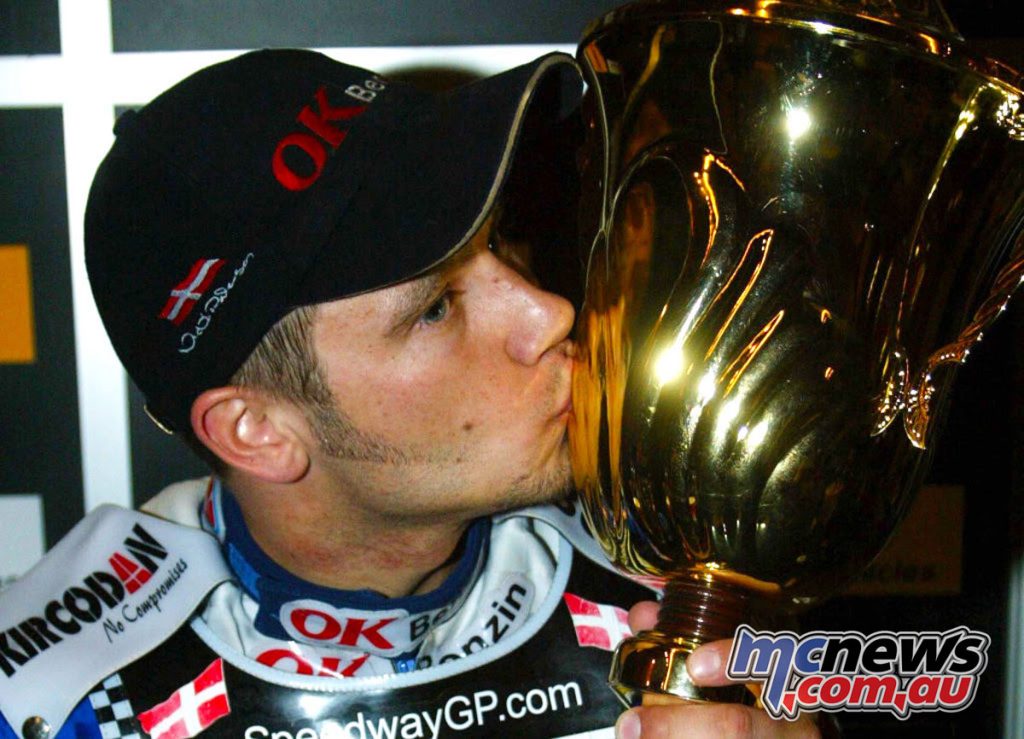
Your second title win came in a very special 2007 Speedway GP season, which saw you register a record-equalling 196 championship points and four SGP wins along the way. You finished 43 points clear of runner-up Leigh Adams. What were the magic ingredients that took your form to this level?
“The secret was my fitness – no doubt about that. I had already started working on it in 2006. I started training halfway through that year, and then in the winter, I went into a different training style with my physio Lisa Thomey. We were training differently and doing things specially developed for a speedway rider. When the season came, I even shaved my hair off before the first meeting I had!
“The team behind me was good and the engines were working very well. My equipment was extremely good. I wasn’t a consistent rider in 2003, but over 11 rounds I was the most consistent. In 2007, it was a different level. I was absolutely the best. In the first two Speedway GPs, I scored 47 points from a possible 48. I only dropped one point in the first two rounds. I was one step ahead of everybody for the whole season.”
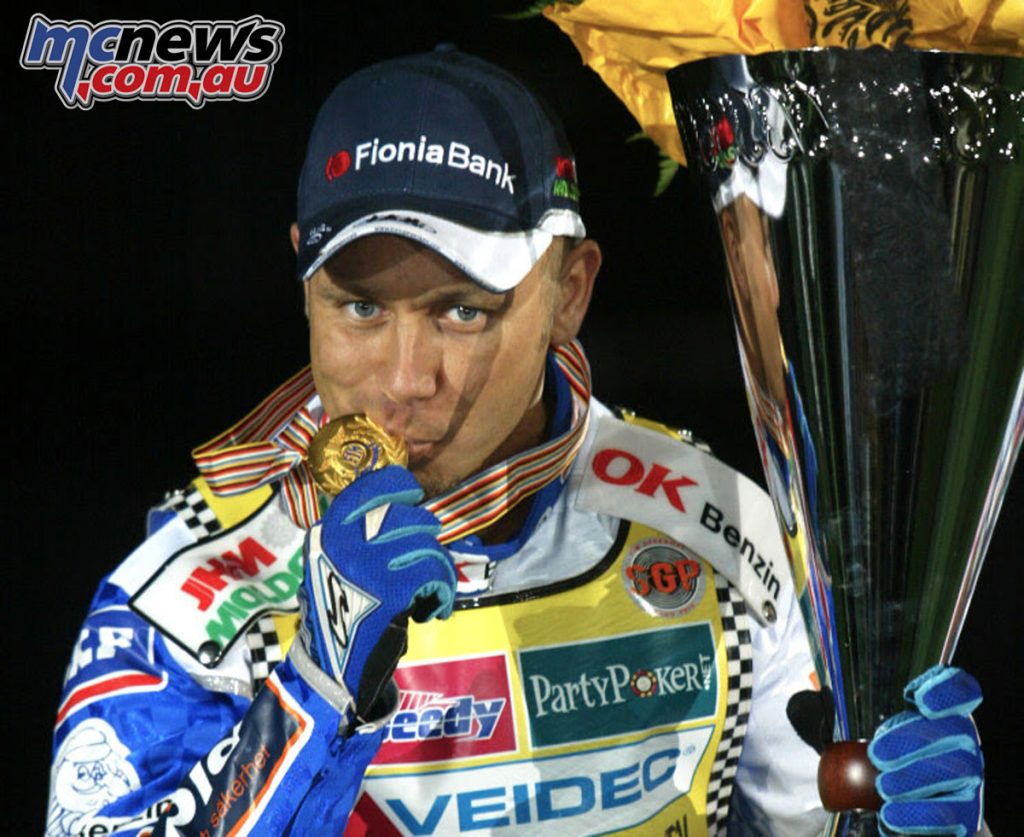
You became only the second rider of the Speedway GP era since 1995 to retain the World Championship when you won No.3 in 2008. Aside from you, only Tony Rickardsson and Bartosz Zmarzlik have won back-to-back SGP titles. What is it that makes retaining the crown so tough?
“When you are chasing the title, you are fighting against the other guys. You want to beat this one or this one to become world champion. But when you’re No.1, you have no-one other than yourself to beat. That’s a mind game in your head and that’s hard.
“But it was the next step. I won it in 2003 and it took me a few years before I got consistent. When I won in 2007, I knew straight after my last race that my next step was to win it again because only Tony had done that before. It wasn’t easy at that time. There were at least 10 riders who could win every Speedway GP on their night. That was a different generation, and I am so privileged that I was able to compete against those top boys.”
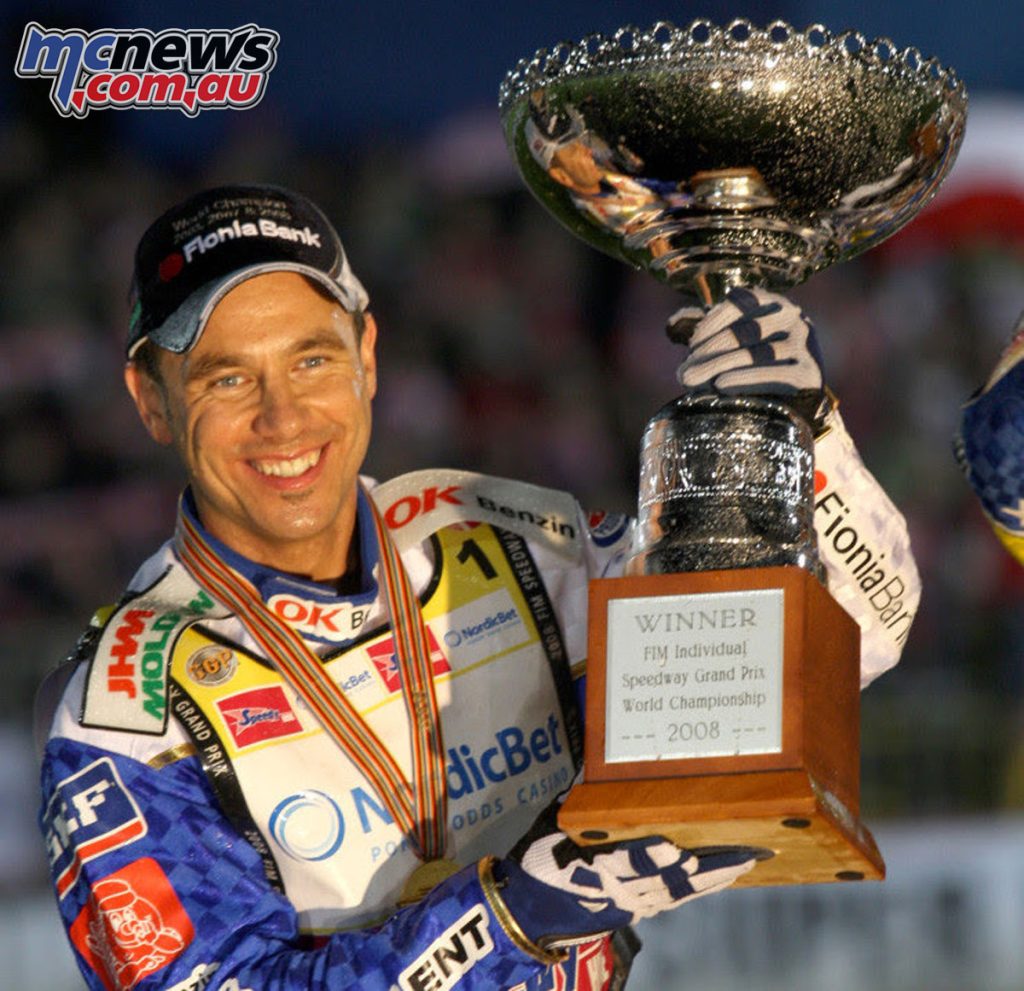
You came incredibly close to winning title No.4 in 2012 as your Speedway GP World Championship battle with Chris Holder went down to the wire. He had a two-point lead over you going into the season-closing FIM Torun Speedway GP on October 6, 2012, and the two of you met in semi-final two. You clashed going into turn one and both of you fell. What do you recall about the incident?
“Gate one was the best on the night, but if anyone can gate from any of the other bad gates, that’s me – it has always been me. I pulled something special out and I knew I needed it to beat Chris, who was on gate one – it was his home track at the time also. I just managed to make the gate and I put the bike in front of him. He had to shut off the gas, but he decided not to shut off and went over the little ramp-like kerb with his front wheel. All of a sudden, his back wheel hit it as well and it meant he took off. He rode straight into me and knocked me off.
“You can put all four riders back in the first corner, but the crash has to be nobody’s fault for that to happen. I had clearly made the start on him, I put it on the white line, but he rode straight into me. In Torun, your back wheel cannot get over that white line. If you hit it, you just take off and get grip. Chris didn’t do it on purpose. But he still did it and he still ran into me, which we all know. We have talked about it so many times – me and Chris. We are cool with each other. But at that time, all I wanted was fairness and all four riders back wasn’t fair. At that time, I would have been a four-time world champion.”
You said something to Chris as you left the track and there was a brief altercation between the two of you. What was said between you?
“It was a mind game. All I did was a mind game. Me and Chris had never had any problems. He was racing hard against me, and if I had done that to someone else, they wouldn’t have been happy. What I didn’t like was when Jason Crump pulled Chris to the side and took him into the corridor. I knew Chris was mind-blown a little bit because he was nervous. But Jason felt he had to help him somehow to make sure I didn’t become world champion. I am not sure if Jason wanted Chris to be world champion. I have never talked to him about why. Maybe he just thought it was better that his own countryman won than letting it go to me?
“But looking back at it, I am proud of what happened. It was tense at the time, but it was completely box office. It shows how much we all wanted to win and, at the end of the day, that’s just lovely.”
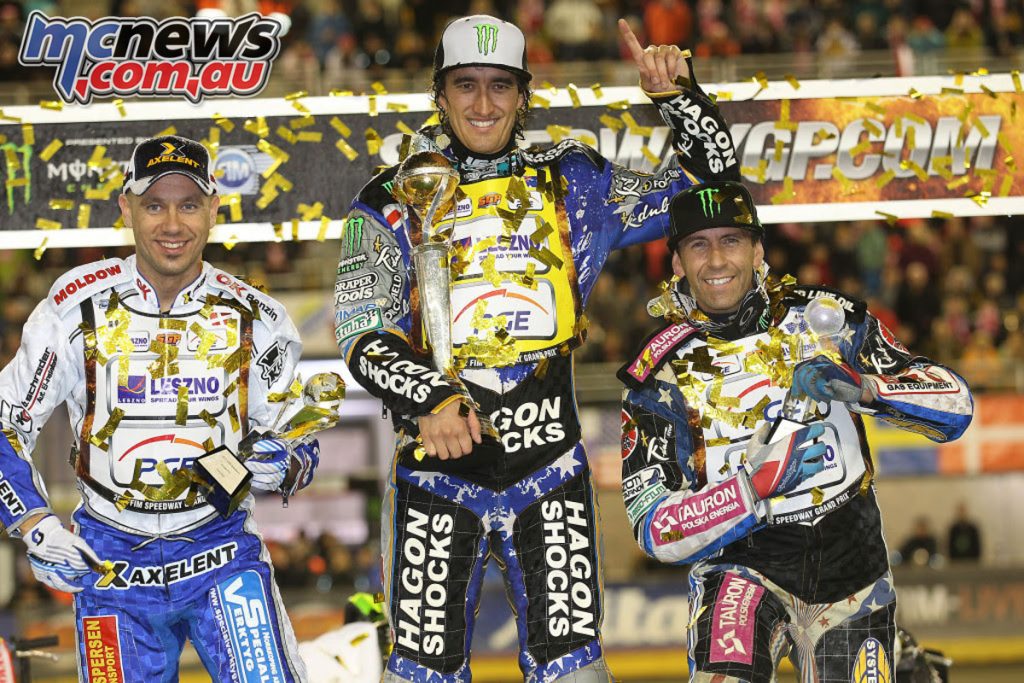
You did win four gold medals in the FIM Speedway World Cup with Denmark – triumphing in 2006, 2008, 2012 and 2014. What was it about the FIM SWC that brought the best out of the Danes as they took on a very strong generation of Poles?
“When I am racing with the Danish flag on my chest, it has always done something special for me, especially in the World Cup when I was racing with Hans Andersen, Niels-Kristian Iversen and all of those boys. When we rode together as a team, we won as a team, and we lost as a team. We might not have been the best friends in the world, but we respected each other when we rode on the same team, and we helped each other 110 percent. I still remember one of the Semi-Finals was at Eastbourne in 2004. All the Danes hated the Eastbourne track and I told them exactly the setup for it.
“For years and years after that, they went to Eastbourne, and they loved it. Those are the things you need to give, and we managed to help each other.”
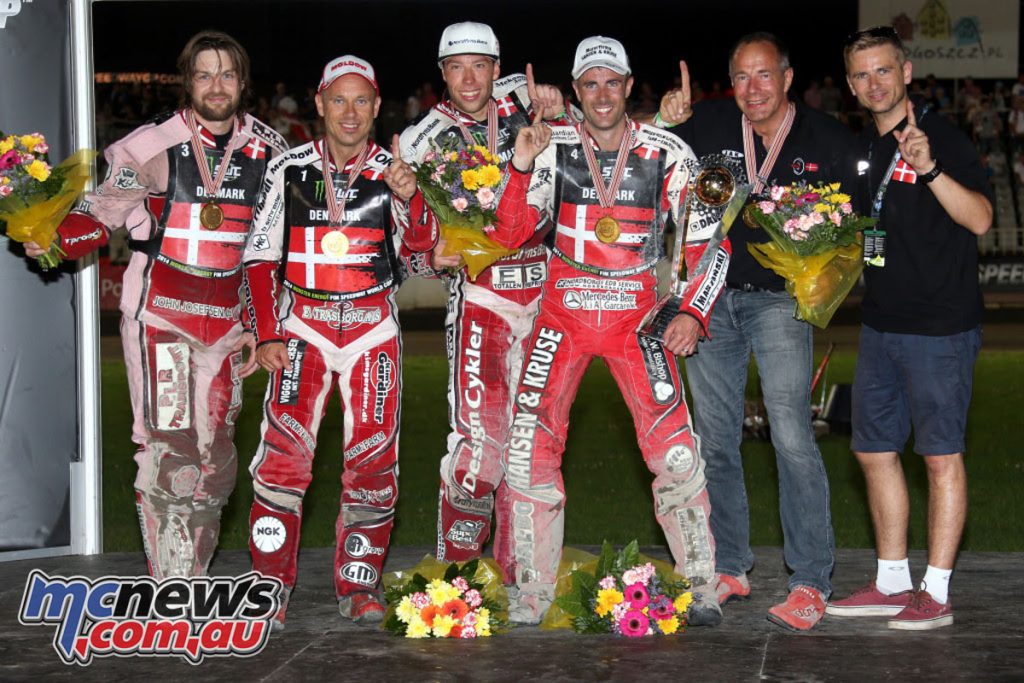
Some of your latter years as a rider have been hampered by injury, but nothing was more severe than the badly broken hip and pelvis you suffered in a PGE Ekstraliga crash at Polish club Grudziadz on June 5, 2022. Did you think that was the end of your riding career at age 45?
“These are 110 percent the toughest injuries I have ever had with the surgery I went through. I didn’t know if I was going to get back to normal life again. My leg went straight through the pelvis, and it was sitting in the wrong place. Within less than 48 hours, if I was unlucky, I could have lost the leg. The nerves and veins providing the blood circulation were trapped. I sent my scans back to my doctors in Denmark and asked them if the leg was sitting in the right position. They said it wasn’t and then I had a little discussion with the doctors in Poland. All of a sudden, they put me to sleep, and they pulled the leg out.
“At 11pm when they brought me back to the room after pulling the leg out of my pelvis, I was already thinking, ‘When am I going to come back?’ Four days later, I was flown back to Denmark by air ambulance, and I had another operation the next day to fix the breaks. I knew I would be back, but I didn’t know when I would be back. I always believed I would be back, and I do not know where that came from. I know that one day I will retire, but I want to know I did it my way and I did it because I could, not because I had to.”
You will be racing on with Speedway Ekstraliga 2 club Rzeszow and Danish team Grindsted in 2024, despite turning 47 in April. How is the body now and how much has it improved in a year?
“I wanted to come back in time for the 2023 season. I wasn’t in the best condition fitness-wise, but I didn’t have that many months to train because I wasn’t allowed to do anything for the first three or four months after the surgery.
“But I wanted to finish off 2023 and throughout this whole winter, I have been training hard to come back in the best way I can. Now I can at least train in certain ways to come back fitness-wise for 2024. Last year I couldn’t do anything at this point in the winter. I didn’t start my training until mid-January. Now I can do the cardio and things like that, and I am way ahead of schedule training-wise. I don’t see a problem and I can be stronger for the coming year.”
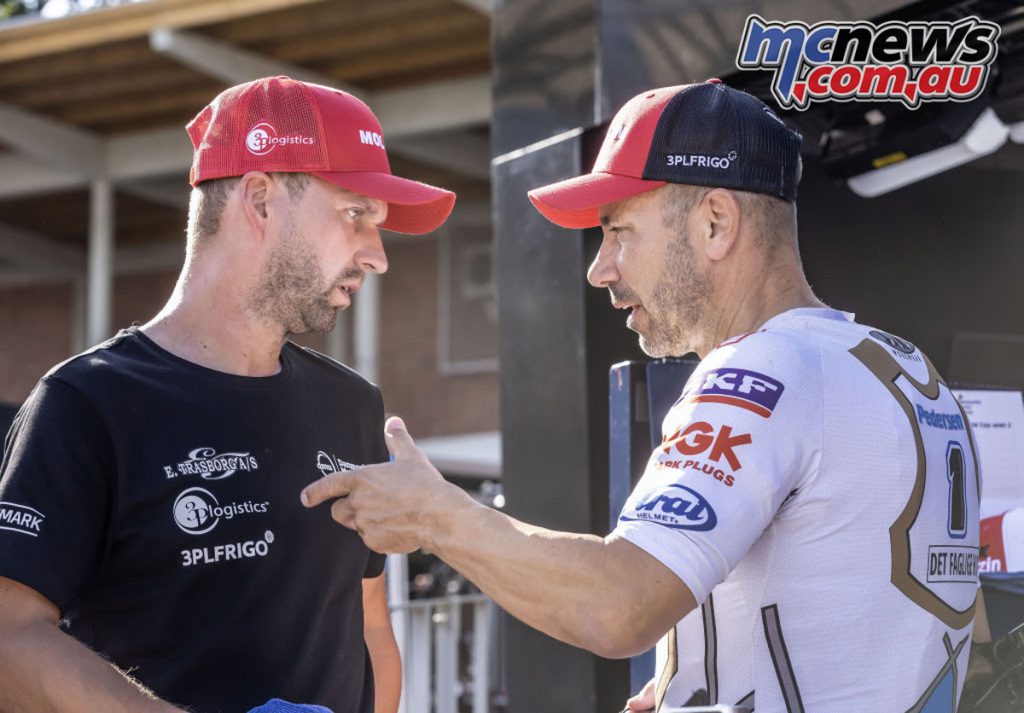
You returned to the Danish national side, becoming the FIM SWC’s first-ever rider-manager at last summer’s tournament in Wroclaw as the team won the bronze medals in an epic final where just six points separated the four sides. What tempted you to take over from Hans Nielsen as national coach?
“I felt like it was a challenge for me. My missus said, ‘It’s never going to happen. They are never going to take you after all the challenges you have had with the federation over the years.’ I never thought they would take me. It was kind of a challenge to see if they would take me or not, but I felt that it would be stupid if they didn’t. I have been through everything – absolutely everything in this sport and also life-wise. I have been young and travelling. I’ve had girlfriends and then not had girlfriends. I have had sponsors and money, and I have had no money. There is nothing I can’t answer when the boys call me.
“Being part of the World Cup was good. It was a team decision as to who would be in the top five. The boys wanted me to be in and we had a cracking week. Everybody got on very well and the team spirit hasn’t been as good as this for the last five years. It was a privilege for me to bring that along to the team and we did it for ourselves and also for Denmark. It went down to the last race – we could have won it, and we could have also been last. Third place was not too bad with the way we were riding that night.”
Does making the transition from competing against the Danish riders to managing them feel strange in any way?
“I think it was kind of easy for me. I had a lot of talks with the boys. Yes, I can challenge them in the leagues in Poland, Denmark and stuff like that, and I can laugh about that. I have told them that of course we are still going to race hard with each other, but I do not need to compete with them in the World Championship. They should take having me there as an advantage. I have my finger on the pulse of what’s going on right now with everything in the sport. It didn’t take them long before they realised this is good.
“I just want the best for Danish speedway. I am not here just because of the TV or because I am in the role of team manager. I am here because I have something positive to say and then it’s up to the riders to react to that. I also like that I am 100 percent honest with them. They do not doubt that. This makes it easier for them to understand, take in what’s being said and learn from it.”
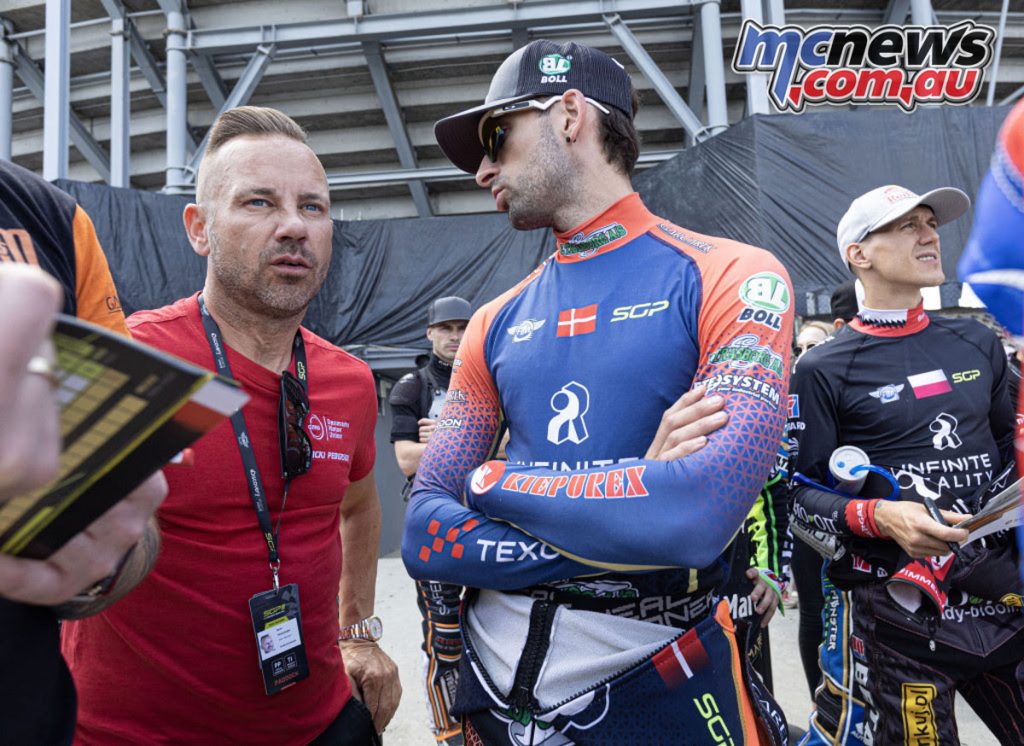
You get another chance to chase gold in the FIM Speedway of Nations in Manchester from July 9-13, 2024. How much are you looking forward to that week?
“I am definitely looking forward to the SON. It’s even more intense with just three riders in the team. What I am going to bring is definitely the team spirit. We are there to win together or lose together. It’s not a one-man show. It’s important that everyone scores consistently, and then it is possible to reach for the World Championship.”
There were occasions when your Danish riders were disqualified from races at the Monster Energy FIM SWC last summer, and yet you reacted much more coolly as a team manager than you may have previously done as a rider. Has being a national coach calmed you down?
“I am learning every day and now I have a responsibility for our federation, not just for my own business. I have a responsibility for representing my federation in the right way. We saw in the World Cup there were challenges when the referee excluded some of my riders. I handled it in the right way because I had to. We represent the sport in Denmark, and I was determined to handle things in a good way.”
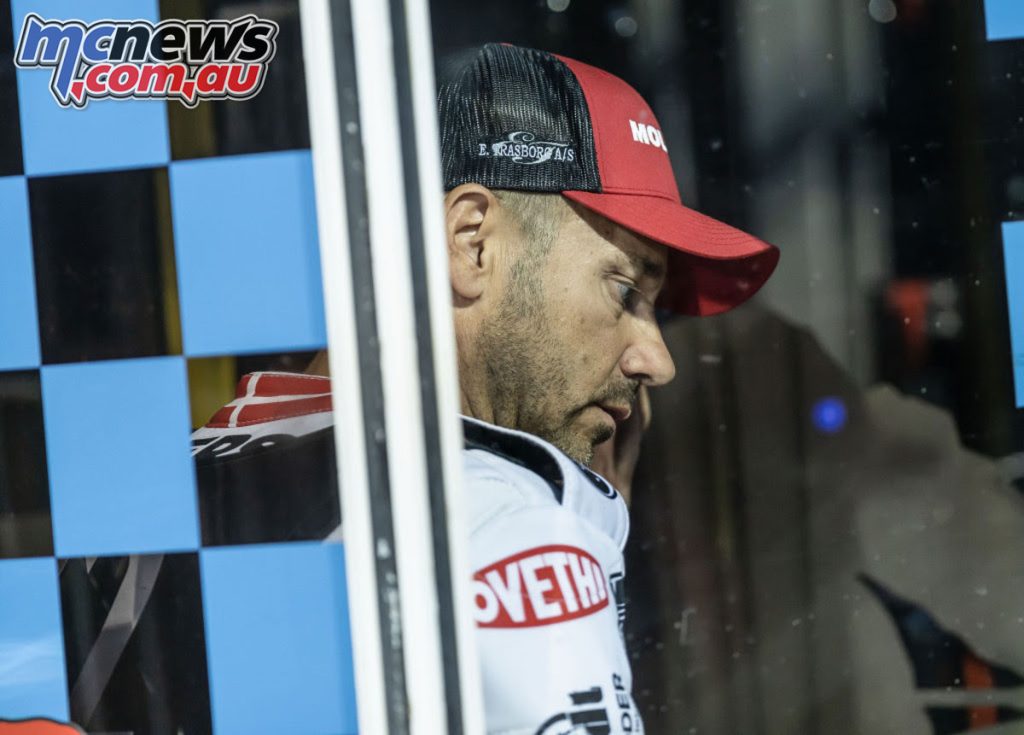
As a rider, you gained a reputation as a colourful character and sometimes a pantomime villain for making tough moves on the track. Can you recall a point when you feel you started to gain this reputation?
“Sometimes in sport, you get that reputation, and I don’t know where it came from. Maybe it could be from when the Danes raced the British boys at that time. The journalists and commentators love things like that. I’m not sure. There are riders nowadays that are tough – even Bartosz Zmarzlik is a tough rider on the track.
“But it’s better to be a name than a no-name. As long as you are being mentioned here and there, it means you are important and value for money. The day they don’t mention your name anymore, you are finished.”
Does that desire to stay in the spotlight drive you to keep going?
“I still have ambitions and I want to do well in my business, otherwise I would retire. But it’s a nice feeling when you have tried everything and won everything, and yet I still continue because I have the power in my blood, and I still enjoy it. That has always been my key and my power. I want to race the bike more than anyone else.”
Congratulations on a fantastic career and a story that continues to be written as a rider and team manager. See you at the FIM Speedway of Nations in 2024!


















